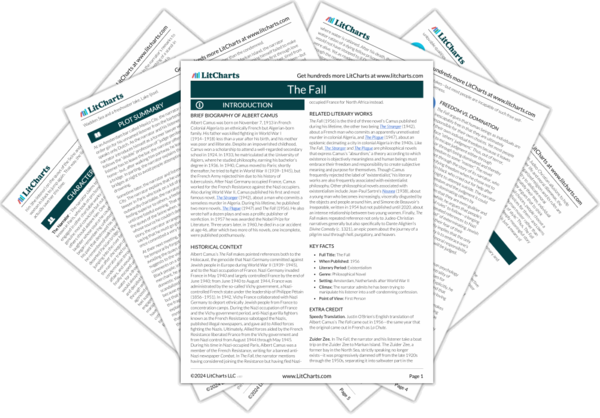Du Guesclin is a young French man who, though very religious, fights in the Spanish Civil War (1936–1939) against Spanish dictator Francisco Franco’s conservative-Catholic fascist Nationalists. He meets the in a Nazi prison camp in Northern Africa, where the narrator was arrested and imprisoned after fleeing Nazi-occupied France. Du Guesclin is not the man’s real name—the narrator nicknames him “Du Guesclin,” presumably after Bertrand du Guesclin (c. 1320–1380), a famous French knight and military leader who fought during the Hundred Years’ War (1337–1453). Disgusted by his perception that the Catholic pope supported Franco, the religious Du Guesclin suggests that the men in the prison camp should elect an alternate pope from among their members. When he asks which of the prisoners has the most flaws, the narrator raises his hand, so Du Guesclin proposes him as pope—and the other prisoners agree. Later, Du Guesclin dies of thirst in the prison camp, where water is rationed. After his death, the narrator steals the water ration of a dying fellow prisoner, something he claims he would not have stooped to if Du Guesclin, whom he admired, were alive. Yet as readers learn about Du Guesclin only through the novel’s unreliable narrator, it is unclear how much of the story is true—or even whether Du Guesclin is real.
